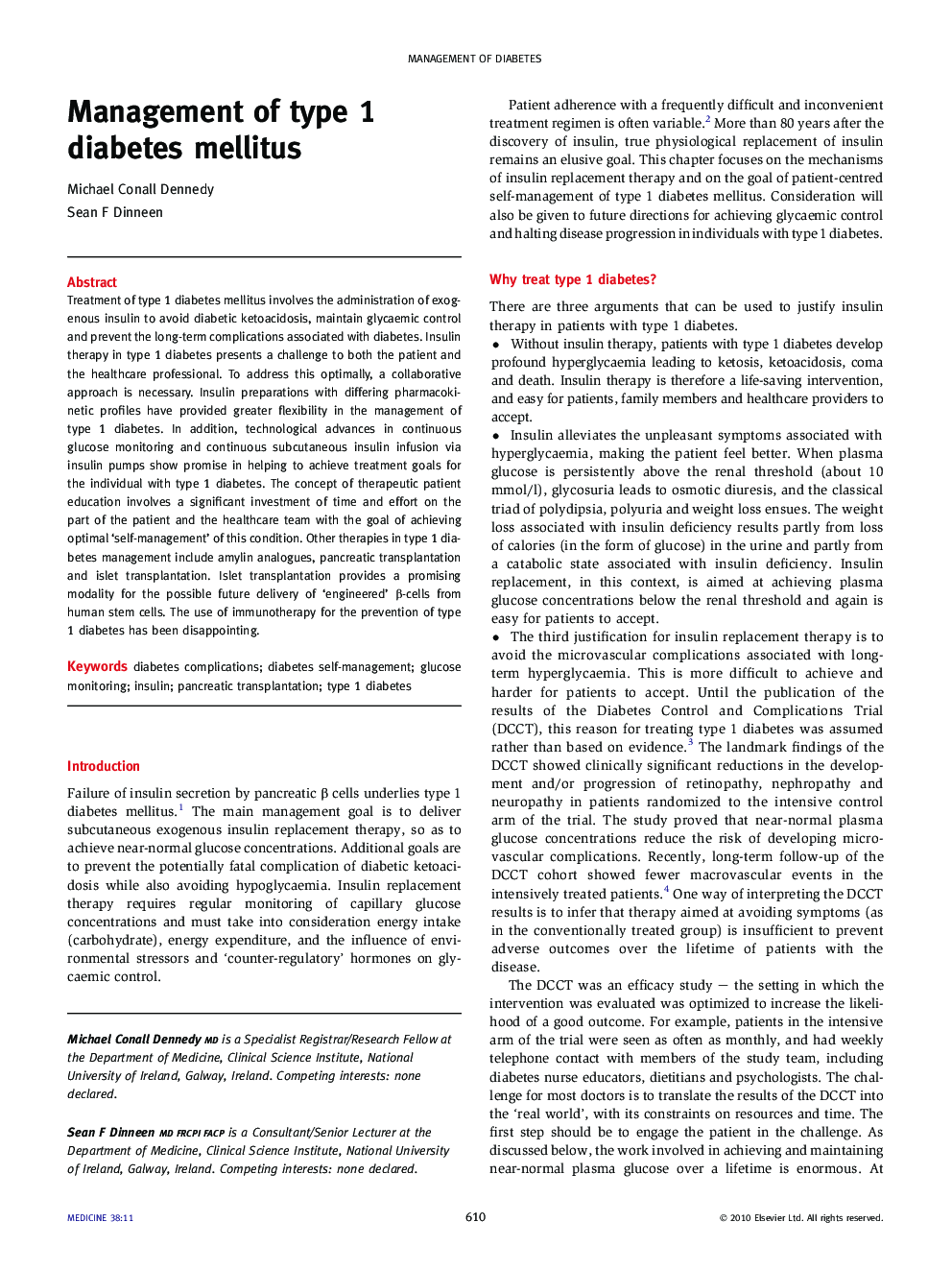| Article ID | Journal | Published Year | Pages | File Type |
|---|---|---|---|---|
| 3805078 | Medicine | 2010 | 8 Pages |
Treatment of type 1 diabetes mellitus involves the administration of exogenous insulin to avoid diabetic ketoacidosis, maintain glycaemic control and prevent the long-term complications associated with diabetes. Insulin therapy in type 1 diabetes presents a challenge to both the patient and the healthcare professional. To address this optimally, a collaborative approach is necessary. Insulin preparations with differing pharmacokinetic profiles have provided greater flexibility in the management of type 1 diabetes. In addition, technological advances in continuous glucose monitoring and continuous subcutaneous insulin infusion via insulin pumps show promise in helping to achieve treatment goals for the individual with type 1 diabetes. The concept of therapeutic patient education involves a significant investment of time and effort on the part of the patient and the healthcare team with the goal of achieving optimal ‘self-management’ of this condition. Other therapies in type 1 diabetes management include amylin analogues, pancreatic transplantation and islet transplantation. Islet transplantation provides a promising modality for the possible future delivery of ‘engineered’ β-cells from human stem cells. The use of immunotherapy for the prevention of type 1 diabetes has been disappointing.
